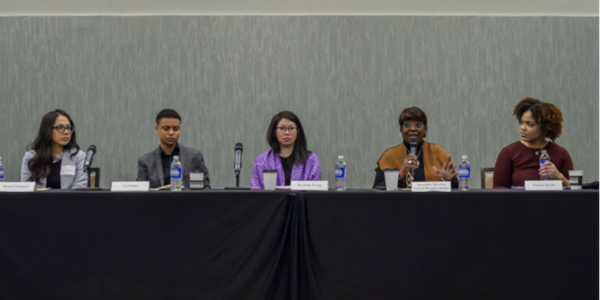
Associate Vice President Chante Harris on New York’s Plans for Cannabis Policy in the New Year
Written by Chante Harris, Associate Vice President, Capalino
This week, in his agenda for the first 100 days of his third term, Governor Andrew Cuomo announced plans to push for the legalization of adult-use marijuana in New York and address the injustices caused by cannabis prohibition. This announcement came only a week after regulators, businesses, policymakers, community groups, advocates and entrepreneurs from across the country convened in Albany to discuss sound cannabis policy and reinvestment.
The Marijuana: Justice, Equity, Investment Conference hosted by the Drug Policy Alliance in Albany on December 11 and 12 brought together experts in public health, regulatory development, economic justice, sustainable agriculture, and others to lay out a blueprint for a legalized market. The conference, filled with thought-provoking discussions, highlighted critical questions related to taxing and regulating the adult-use market in New York.
From my position as moderator of the panel on diversity and equity, here are the five key takeaways from the conference for New York State to consider as it plans for legalization in the new year:
1. Break the Vertical
Currently, New York has a vertically integrated cannabis industry. Unlike a horizontally integrated program where manufacturing, testing, dispensing, distribution, and transportation are all considered separate businesses, a vertically integrated program requires businesses to control all aspects of operation. Cat Packer, Executive Director of the Department of Cannabis Regulation (DCR) in Los Angeles, along with many other speakers advised against a vertically integrated program given the prohibitive costs for start-up and other barriers to market entry.
2. Access to Capital
Regulators and businesses from California, Massachusetts, and Colorado strongly urged New York to think through what access to capital looks like for those looking to start and grow businesses that have been most impacted by the prohibition of cannabis. More specifically, many urged the state to strongly consider allotting funds to finance initiatives and programs for economic empowerment for communities of color prior to the tax revenues expected from the industry.
3. Tiers in the Application Process
Kay Doyle, Commissioner of the Cannabis Control Commission, discussed the need for a tiered application system to ensure that small businesses are not pushed out of the market because of price depreciation as we have seen in other places such as Oregon.
4. Community Engagement
In legalized markets across the country, businesses are actively engaging their consumers and the communities where they operate. Engagement with key stakeholders in neighborhoods will be crucial to a successful entry into communities. Regulators advised New York to think about ways to fit the industry into existing frameworks and avoid host community benefits agreements explaining that they have not worked and instead served as barriers to entry. A locally driven effort creates more buy-in and innovative solution that respond to community needs.
5. Sustainable Production
Kristin Nevedal, Chair of the International Cannabis Farmers Association, shared with the audience that an upcoming report to be released sometime this month from New Frontier Data will show a 16% increase in electrical use for legal use cannabis cultivation and utilization of 1.34 million megawatt hours for legal cannabis cultivation alone in 2018. All panelists urged New Yorkers to think about sustainable practices for growing and moving the tide forward in working to decrease the number of greenhouse gas emissions.
A reoccurring theme throughout both days of the conference was the desire to continue discussions with a variety of stakeholders and bring a diversity of thought and innovative ideas to what New York City Comptroller Stringer predicted will be a $3.1 billion adult-use marijuana market for New York State.
You can view the full program and list of speakers here. Additionally, the live stream of each panel can be viewed here.

Equity and Diversity in the Industry Panel featuring (left to right) Sharon Velasquez, Executive Director Cat Packer, Rachelle Yeung, Assemblywoman Crystal People-Stokes and Chante Harris.
Capalino works with businesses, startups, and organizations interested in entering and growing in a new market. For more information about the status of cannabis legalization and opportunities to enter the New York market, please contact Chante Harris at Chante@nullcapalino.com o 212.915.9189
Get The Latest From Capalino! Sign up for our free weekly newsletter for a roundup of top news and appointments from New York City and State government straight to your inbox every Friday. Click here to subscribe to Affairs+Appointments.



